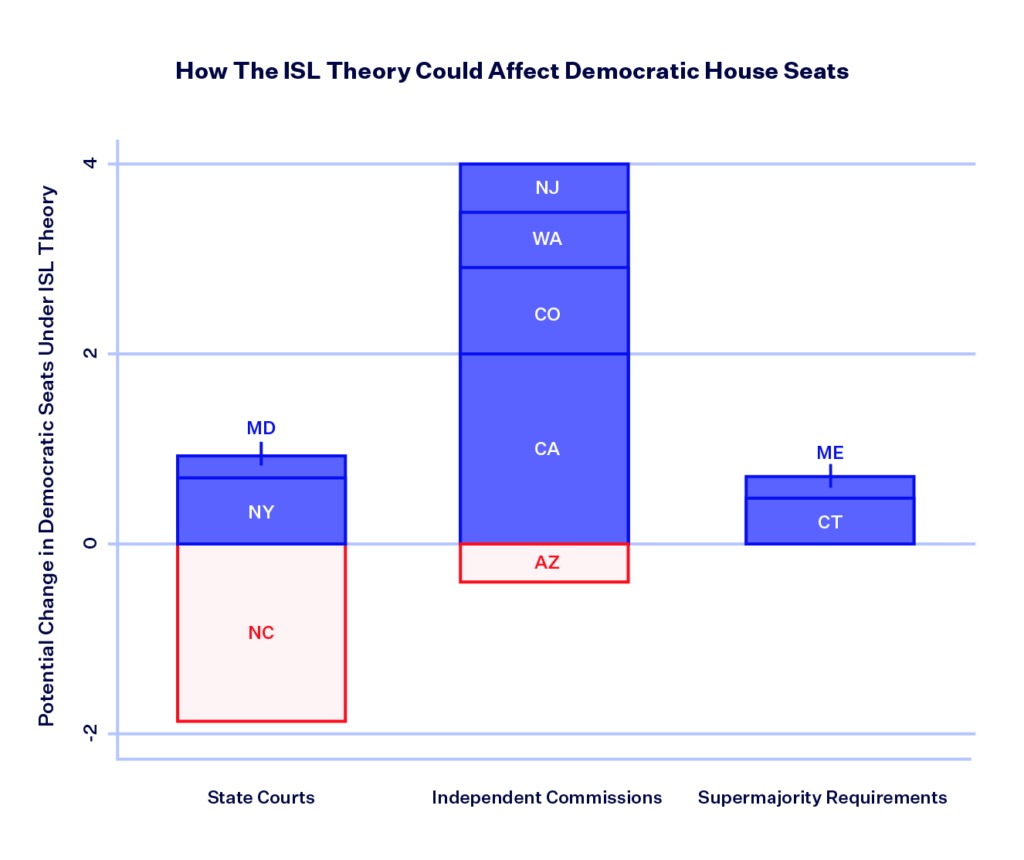I wrote this piece for Democracy Docket on the partisan implications of the independent state legislature doctrine, solely with respect to congressional redistricting (the subject of Moore v. Harper).
However, at least in the context presented by Moore — congressional redistricting — this assumption is too quick. Of course, in North Carolina itself, the adoption of the ISL theory could result in a fair map being replaced by a Republican gerrymander. But nationwide, North Carolina is more the exception than the rule. Overall, Democrats would modestly benefit from a holding that state legislatures’ ability to draw congressional districts can’t be limited by state courts, independent commissions, or supermajority requirements. To be clear, these partisan effects in no way vindicate the ISL theory. It remains a pernicious claim unsupported by history or precedent that could transfer power to some of the institutions — state legislatures — least deserving of it. Nevertheless, given the Court’s interest in the ISL theory, its partisan implications are well worth investigating. . . .
Finally, the hypothetical Democratic or Republican gerrymander for each potentially affected state simply has to be compared to the enacted plan to estimate the impact of the ISL theory’s adoption. For instance, the most pro-Republican map in the ALARM Project’s North Carolina simulation set is expected to yield 5.0 Democratic seats (out of 14). In contrast, the enacted North Carolina plan is expected to yield 6.9 Democratic seats. This means a ruling in favor of the Moore petitioners might enable North Carolina Republicans to increase their seat tally by about two. Similarly, the most pro-Democratic map in the ALARM Project’s California simulation set has 46.5 Democratic seats (out of 52) while the enacted California plan has 44.5 Democratic seats. If Moore ended the experiment of independent commissions, then, California Democrats might be able to win around two more seats.
The California example shows that Republican gains due to the ISL theory’s adoption could be counterbalanced by additional Democratic seats elsewhere. In fact, aggregating across all fourteen potentially affected states, Republican gains would be more than offset by extra Democratic seats. There’s only one state other than North Carolina where Republicans could benefit from a ruling for the Moore petitioners: Arizona, where a Republican gerrymander might have 0.4 more Republican seats than the enacted congressional plan. However, there are seven states beyond California where Democrats could be advantaged by a holding that state legislatures can gerrymander to their heart’s content: Colorado (0.9 more Democratic seats), New York (0.7), Washington (0.6), Connecticut (0.5), New Jersey (0.5), Maine (0.2) and Maryland (0.2). Summing these figures, Republicans could add roughly 2.3 seats from the ISL theory’s adoption while Democrats could tally about 5.6 seats more. The chart below displays these results graphically.
